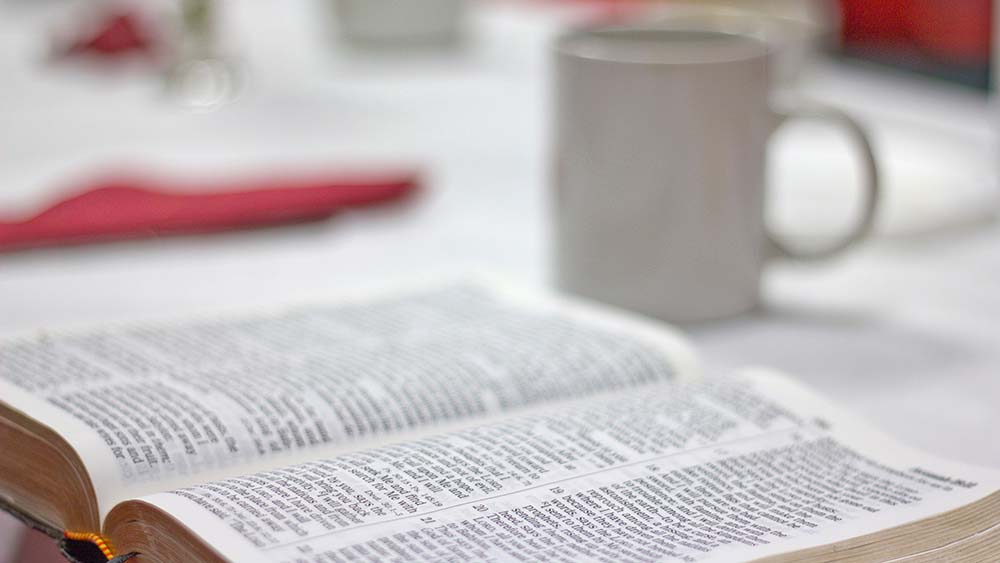When it comes to picking a Bible reading plan there is no shortage of options. In fact, there are so many options it can be challenging to know where to start or what is good. The good news is that you really can’t go wrong with reading the Bible. Nevertheless, even though the whole Bible is inspired, not every section of the Bible is equally inspiring. In other words, some parts of the Bible can feel dry unless you know a lot about the times, land, culture, and purpose for it being included in the scriptural canon. This is why it’s good to pick the right Bible reading plan for you!
So how do you know if a Bible reading plan is right for you? Three key things you need to keep in mind while picking out your plan are:
- How long do you have to read each day?
- What depth do you want to study or read?
- What accompanying resources does the plan have?
By taking a deeper dive into each of these questions you can discover what Bible plan will best fit your needs.
How long do you have to read each day?
Before you answer this question you need to also consider your priorities. Many times people just slip a little Bible into their day and call it good. Please consider a little more about what God is calling you to in your relationship with Him. To really get the most out of your time in the Word, you also need to think about what you read and talk to God about it in prayer. This means if you set aside a half hour, you may really only have 10 minutes to actually spend time reading. One of the best ways to stop doing a plan is not being able to keep up with it over the long haul. Supposing you have a lot of time you should spend more time reading, but if your time is limited you need to balance your time with God.
What depth do you want to study or read?
Many ways exist to study and read the word of God. Bible reading plans tend to be either geared as a study or a reading guide. Plans that are just a reading guide really don’t do anything other than help you regulate what you are going to read each day. A Bible study often has questions and other resources to help get more out of what you are reading. If you are going to be reading large portions of scripture (spend an hour or more reading at a time) you may want to go light on the study resources because the value of reading a lot at a time is getting the big picture. On the other hand, if you are reading small amounts of scripture at a time then extra study resources are often helpful.
If you are going to read with other people using a plan, then you also need to consider what is the purpose of your group. The type of reading and study you choose to do will shape what your focus will be in your quiet time and with your reading partners. Having questions to go with your reading can be very helpful in fostering discussions. If you choose to do a rapid read-through of the Bible (90-day Bible reading plan) it can be helpful to encourage each other to share a short summary of what you read together.
What accompanying resources does the plan have?
Some reading plans are no more than a pdf that you can print, but this is not the case for all reading plans. If you are planning on reading by yourself this might be fine, but if you are going to read in a group then it might be good to get something a little more professional. Not everyone likes to read the same way. Some people want to listen, others want to read with an app, others want to keep something in their Bible, and still, others like to journal. Bible Study Together’s Chronological Cross-Reference Bible reading plan is one of the few Bible reading plans with all of the resources. It was made specifically for groups and whole churches to read the Bible together.
Bible Study together’s reading plan is very adaptable in that it is set up to be able to use as a 2-year plan, 1-year plan, 6-month plan, or a 90-day plan. It is broken out into 730 sessions and by doing multiple sessions a day you can tailor the plan to any pace you want. In addition, its app has built-in prayer features and a private social group forum so you can answer its questions and share with people in your group. No other Bible reading plan has so many resources wrapped around it to uniquely tailor it to every group.
Conclusion
Choosing the right Bible Reading plan can make all the difference for yourself or the group you are reading with. Taking the time to consider these questions can profoundly impact your experience. When you know how long it will take and what kind of involvement you are planning on, it is much easier to get other readings with you. If they don’t know what to expect, it’s hard to get them to commit. If you want to find a great list of Bible reading plans check out this one.
_________________
Featured image provided by: okiebyers / stock.adobe.com


